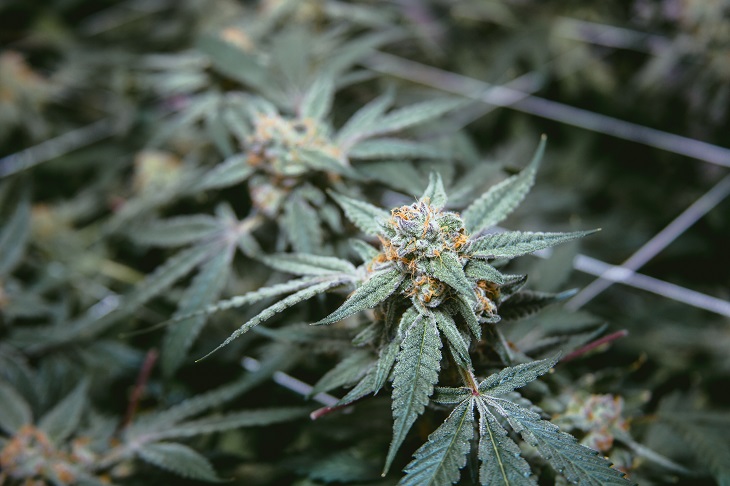Cannabinoids are a group of chemical substances that exist both within the human body and in nature. Cannabinoids make up the endocannabinoid system in the body, a system that plays a role in communication between the brain and the body. It has a vital role in many functions within the body, including the immune response, mood, metabolism, and memory.
In medical marijuana, cannabinoids are found in the cannabis sativa plant. There are over 100 cannabinoids in the cannabis plant, with tetrahydrocannabinol (THC) and cannabidiol (CBD) being the two more notable ones. While THC is the psychoactive cannabinoid found in the cannabis plant, CBD is thought the moderate or lessen the psychoactive effects of THC. It can also produce an anti-psychoactive effect.
What are the health benefits of cannabinoids?
Focusing on two specific cannabinoids, THC and CBD, reveals a myriad of different health benefits. THC and CBD have different benefits when ingested medicinally. THC can offer medical relief from the symptoms of several ailments and conditions, including:
- Chronic pain
- Insomnia
- Glaucoma
- Loss of appetite
- Nausea
- Anxiety
- Autism
Since CBD offers some health benefits without the psychoactive component of THC, it is an ideal choice for medical marijuana users who don’t wish to experience those particular sensations. CBD has been used for relief of conditions such as:
- Seizures disorders and epilepsy
- Chronic inflammation
- Chronic pain
- Psychosis or mental health disorders including anxiety and depression
- Nausea
- Migraine headaches
- Gastrointestinal disorders such as inflammatory bowel disease

What medical conditions can be treated with CBD oil?
The aforementioned medical conditions such as migraines, seizure disorders, and chronic pain and inflammation are all classified as approved conditions for the use of CBD as medicine.
Other health conditions that can benefit from regular use of CBD oil include cancer, neurodegenerative diseases such as Multiple Sclerosis, and heart disease. Recent studies have found that the use of CBD oil in cancer helped to reduce nausea, vomiting, and pain in patients undergoing chemotherapy treatments.
In the case of neurodegenerative disease, one particular study found that the use of an oral spray known as Sativex was able to reduce spasms in 75% of tested patients. Other studies have found that those with Parkinson’s disease saw an improvement in both sleep quality and overall quality of life following treatment with CBD oil. A study done on mice also found that rodents genetically predisposed to developing Alzheimer’s saw a reduction in cognitive decline with CBD treatment.
The medical use of cannabinoids such as CBD oil for heart disease has shown that those with high blood pressure may experience a reduction in resting blood pressure. One particular study also gave participants stress tests. The patients with a single dose of CBD experienced a lower rise in blood pressure than those who received the placebo.
New research continues to come to light on the use of CBD oil for a plethora of different health conditions, with many studies showing promise in the area of medicinal use of cannabinoids.
What are the side effects of cannabinoids?
Although cannabinoids have been proven to have positive effects on many health conditions, they may also come with a host of different side effects. In the case of THC, side effects can be experienced both in short-term and long-term use.
Short-term THC side effects are temporary and can include:
- Increased heart rate
- Dry mouth
- Red eyes
- Memory loss
- Increased anxiety
- Slower reaction times
- Lessened coordination abilities
- Altered judgment
- Paranoia and psychosis when ingested in large amounts
The long-term side effects of THC typically only occur when it is taken in heavy doses for a long period of time. Those side effects can include:
- Altered brain development if used during early adolescence
- Chronic bronchitis (typical when ingestion method is smoking)
- An increased risk for developing psychosis disorders such as schizophrenia (in those with a predisposition to develop these disorders)
When it comes to the medical use of CBD, side effects may differ from those of THC. Short-term side effects of CBD include:
- Changes in appetite
- Weight loss
- Dizziness
- Gastrointestinal issues such as diarrhea
- Fatigue
Since CBD is largely well tolerated by most people, the side effects are generally mild or non-existent. It can interact with certain medications such as blood thinners, though, so it’s important to take personal health history into account prior to starting a course of CBD treatment.
Methods of ingestion
For those who want to reap the benefits of using medicinal cannabinoids while mitigating risk of developing certain lung issues because of smoking, there are various ways to ingest cannabinoids. Many popular methods include topical creams; edibles such as candy, chocolate, beverages and powders; and oils.
Choosing the right cannabinoid and dosing method for you is important on your journey to wellness. The research for medical marijuana continues to grow, and at present, the benefits of cannabinoids far outweigh the risks for many people suffering from a chronic health condition.
Featured image by herbadea Berlin on Unsplash

